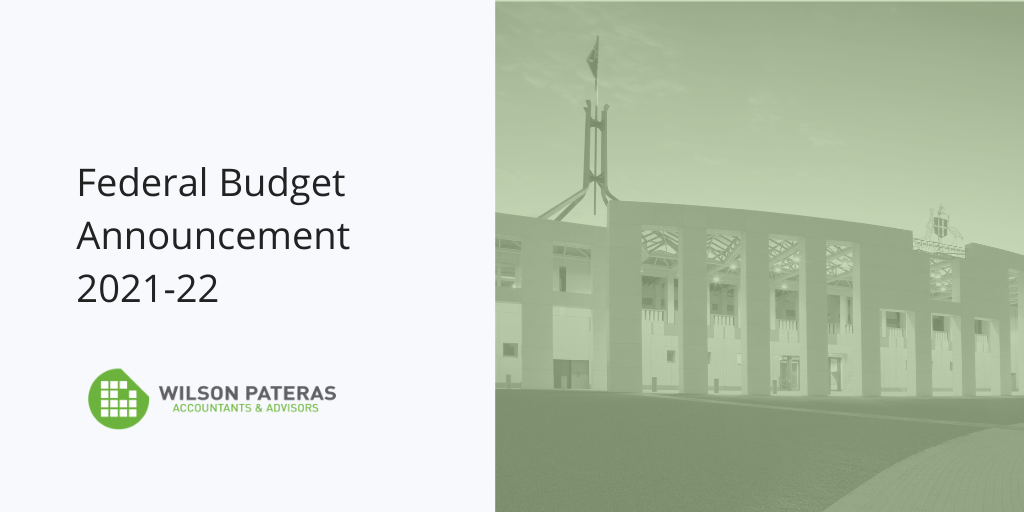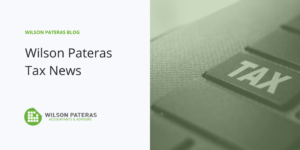
Treasurer Josh Frydenberg has announced the 2021/2022 Federal Budget. Below is a summary of the key financial implications and what you need to know for businesses and individuals following the Federal Budget.
Business financial implications
- The temporary full expensing scheme has been extended until the end of the 2022/2023 financial year. It had been scheduled to conclude at the end of the 2021/22 financial year. This scheme allows businesses to immediately deduct the purchase cost of new or second-hand assets, rather than having to deduct the cost over several years via depreciation.
- The temporary loss carry-back scheme has also been extended for an additional year. It will now be available until the end of the 2022/2023 financial year instead of concluding at the end of the 2021/22 financial year. This scheme enables businesses with an annual turnover of less than $5 billion to carry back losses made from 2019-20 onwards against any income tax liability from 2018-19 onwards.
- A patent box will be introduced from 1 July 2022 that will enable income derived from Australian medical and biotech patents to be taxed at a concessional company rate of 17%.
- The ceasing employment taxation point for tax-deferred employee share schemes has been removed. This means that employees who participate in share schemes with their employer no longer have to pay tax on their shares when they leave the company.
- The excise refund scheme cap has been increased from 100,000 to $350,000 for brewers and distillers.
- A digital games tax offset of 30% will be introduced from 1 July 2022 to promote the development of digital games in Australia.
- The Boosting Apprenticeship Commencement program has been extended and will continue to provide employers with a subsidy of $7000 of a first year apprentice’s salary.
Individual financial implications
- The low and middle income tax offset (LMITO) has been extended for the 2021/2022 financial year. It had been scheduled to conclude at the end of the current financial year.
LMITO provides a tax offset of between $255 and $1,080 for taxpayers earning a taxable income of up to $126,000 per year. Those earning between $48,000 and $90,000 are entitled to the maximum offset of $1,080.
- Individuals will be able to claim the first $250 of costs of self-education courses (which have previously been excluded).
- Tax residency rules have been simplified. If you are in Australia for 183 days or more in a financial year, you will be classed as an Australian resident for tax purposes.
- A ‘no negative equity’ guarantee will be introduced for the Pension Loans Scheme from 1 July 2022. This means that borrowers under the scheme (or their estate) will never be able to owe more than their property is worth.
Pension Loan Scheme participants will also be eligible for a lump sum advance payment of up to $12,385 per year for single pensioners, and $18,670 for couples.
- From 1 July 2022, childcare rebates of up to 95% will be offered for families that have at least two children aged under 5 in day care. The $10,560 cap on households with an annual income of more than $189,390 has also been scrapped.
- The First Home Loan Deposit Scheme has been expanded by another 10,000 places for 2021-22.
- Up to 10,000 single parents who have dependent children will be eligible for federal government assistance to buy a home with a deposit of as little as 2%. This program will be known as the Family Home Guarantee Scheme.
Superannuation changes
- The work test has been removed for people aged 67 to 74 who want to make voluntary, non-concessional and salary sacrificed contributions to their super. Prior to this Federal Budget, people in this age bracket had to work for at least 40 hours over 30 consecutive days in a financial year to be eligible to make a contribution.
- The minimum age to make ‘downsizer contributions’ to super has been reduced from 65 to 60. People over the age of 60 will be able to contribute up to $300,000 from the sale of a family home into their super (or $600,000 for a couple).
- An optional two-year window is being made available to people who want to convert inflexible legacy retirement products (market-linked, life-expectancy and lifetime pensions or annuities) to more flexible products.
- The First Home Super Saver Scheme has been enhanced to enable first home buyers to access up to $50,000 worth of voluntary super contributions for a home deposit. The previous limit was $30,000.
- Employers will now have to pay the superannuation guarantee to employees who earn less than $450 per month. The guarantee will increase to 10% of an employee’s ordinary time earnings from July 1 (up from 9.5%).
How we can help
If you’d like to discuss the implications of the Federal Budget for your specific business or individual situation, contact our expert team for a consultation with either our accountants, bookkeepers or financial advisors at Wilson Pateras. We provide a full range of accounting, tax and financial planning services for both businesses and individuals.




